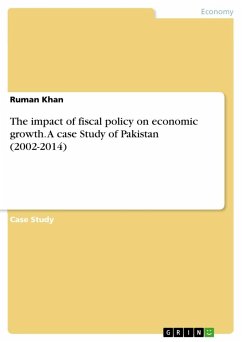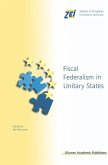Master's Thesis from the year 2015 in the subject Business economics - Economic Policy, grade: -, , language: English, abstract: A large number of countries are trying to improve their ability to serve their inhabitants more efficiently and more effectively. To accomplish this ambition, a reawakening of interest in the practices and in the principles and of fiscal federalism is mandatory. Questions arise such as:- How many taxes are necessary to provide an efficient amount of local public goods?- How should the taxes be allocated most reasonable between the different levels of governments?- Which level of government should have how much freedom of choice concerning tax revenues and tax expenditures, or differently, which degree of decentralisation is most constructive?Generally, two conflicting possibilities to provide an efficient level of local public goods are existing: The first one proposes a high degree of centralisation of the tax system which would lead, if the government is totally benevolent, to an efficient output of local public goods. An argument against centralisation is that a centralised system cannot serve the different needs and preferences of the inhabitants of unequal regions. The second perception states that an efficient level of local public can be provided if the system is decentralised. A possible disadvantage of decentralisation is the appearance of tax competition which may lead to an inefficient low level of local public goods. The discrepancy between these two conflictive systems is going to be discussed in this thesis.Furthermore, politico-economic mechanisms, which are supposed to explain the correlation between degree of centralisation and size of government are introduced which leads to the research question of this thesis:Does a decentralised tax system lead to a smaller size of government compared to a centralised tax system?Which politico-economic mechanisms are responsible for this correlation?In relation to these questions, different approaches are discussed, underlined by theoretical and empirical models.The first one, a public choice approach, states that central governments operate like monopolists, or leviathans, extracting as much tax revenues from the citizens as possible. The aim is not to maximise social welfare, but to increase their control over the resources of the economy. This approach was formulated by Brennan's and Buchnan's Leviathan hypothesis (1980), stating, subject to the above mentioned conditions, that a higher degree of decentralisation leads to a smaller size of government. [...]








